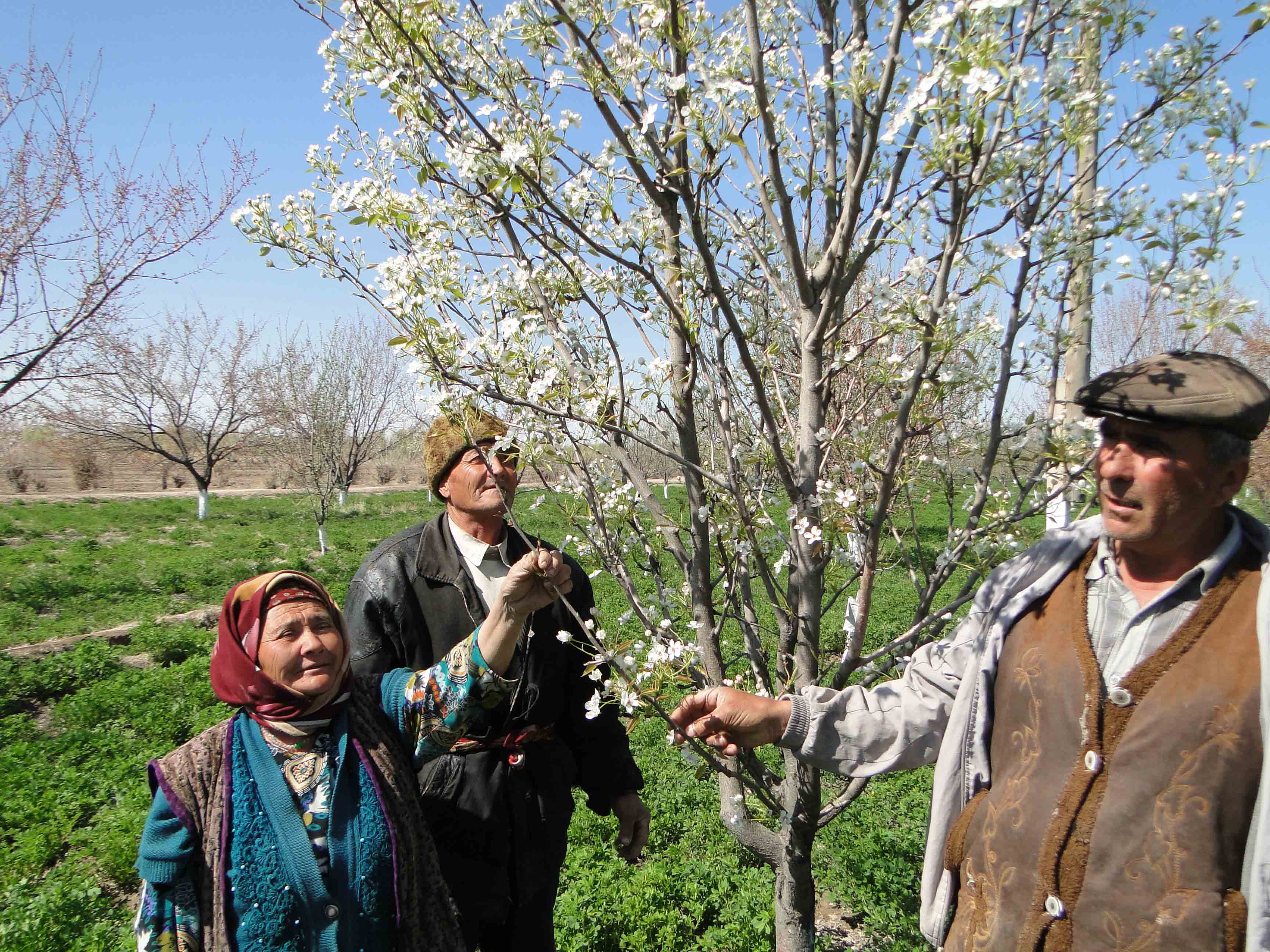
The Central Asia and the Caucasus Association of Agricultural Research Institutions (CACAARI) is one of six regional fora that promote agricultural research for development as part of the Global Forum on Agricultural Research (GFAR). CACAARI is an important link in the GFAR chain, bringing together agricultural scientists, farmers, activists and teachers from more than 40 national agricultural research institutions, 5 international centers and over 30 farmer organisations, NGOs and universities in the region. It is also a partner of the international CIARD movement for open access to agricultural knowledge.
On 17-21 November, in Bishek, the capital of the Kyrgyz Republic, CACAARI hosted a landmark regional conference on Rural Advisory Services in Central Asia and the Caucasus. Co-organizers in these efforts included the Global Forum for Rural Advisory Services (GFRAS), the Global Forum on Agricultural Research (GFAR), Modernising Extension and Advisory Services (MEAS), the International Centre for Agricultural Research in Dry Areas (ICARDA) and International Food Policy Research Institute (IFPRI). What was it that warranted such a pooling of local and international expertise?
Driving the conference was the need to tackle the poor linkages between researchers, advisory services, farmers, private sector stakeholders and policy makers in the CAC region. Everyone agreed that this situation was undermining the ability of CAC farmers to access innovative technologies to improve their productivity and profitability.
The conference brought together more than 100 agricultural representatives of rural advisory services, ministries, international research centers, national research institutions, farmers associations, private sector, universities and academia, NGOs, donors and development agencies, from the eight CAC countries. The purpose of attracting such a diversity of participants at the conference was to draw more attention to the development of a common approach in the planning of joint activities aimed at the development of RAS, current and expected problems caused by the impact of climate change on agro-ecosystems, the establishment and improvement of institutional mechanisms for the exchange of experience and knowledge. Such a participatory approach allowed sharing and discussing the results of mapping RAS systems in different countries, as well as models of government policies and support for rural advisory services and their advantages and disadvantages.
As a first step, the conference established a common understanding of the status, strengths and weaknesses of existing regional advisory services (RAS) in the CAC region. Good RAS work like a net that links rural communities, research, markets and education, helping to build local capacities and empowering people at the heart of rural economies. Accordingly, conference participants had before them the results of a mapping exercise that documented the status of RAS systems in CAC countries that was carried out in the lead up to the conference, along with a number of case studies.
In their discussions conference delegates considered that if rural advisory services are to be successful they need to be focused on smallholders, i.e. subsistence or near-subsistence family farms, as these make an essential contribution to national food security and nutrition. Additionally, gender needs to be mainstreamed into RAS so it can contribute to the well-being and increased income of rural families. Similarly, to be effective, RAS must respond to current and emerging risks affecting farming such as climate change, population changes, over-exploitation of natural resources, environment pollution, sanitary and health threats etc. Considering that exploring and anticipating those changes requires mastering specific tools, new and different mindsets for CAC organizations, the conference provided the opportunity for participants to discuss and realize forward thinking capacities in setting the research and innovation agenda for food, agriculture and rural development and positioning research and innovation in the broader context of development.
There was overall agreement that forging better linkages between the various relevant actors were critical so that CAC farmers can improve their productivity and profitability. This will mean bringing together different actors and institutions looking at the ways of delivering RAS, and how RAS can be financed. Ideas such a using commercial entities (a growing trend in CAC) or producer organisations as delivery agents was raised.
Other ways to assist farmers need to be initiated and conference participants talked about raising awareness on the sustainable use of resources, training, setting up knowledge platforms that capture traditional knowledge and providing evidence-based knowledge and a better understanding of policy trade-offs for identifying approaches appropriate to current institutional and social settings.
Now that the conference is over, the next stage, in 2015, will be to take the results of the discussions from the conference along with knowledge gained from the pre-conference mapping and case studies and undertake more in-depth assessments of what has produced strong RAS in some CAC countries and not in others. Through this better knowledge of the gaps in understanding of the relevance, effectiveness and sustainability of RAS, specific recommendations for strengthening RAS in the context of ongoing policy reforms will be drawn up. These recommendations will be shared in stakeholder interviews, focus group discussions and workshops between November 2014 and August 2015 and be reported upon through the GCARD3 process and 6th GFRAS Annual Meeting, to be held in Issyk-kul, Kyrgyzstan, 2015.
Photo credit: ©ICARDA/Botir Dosov
